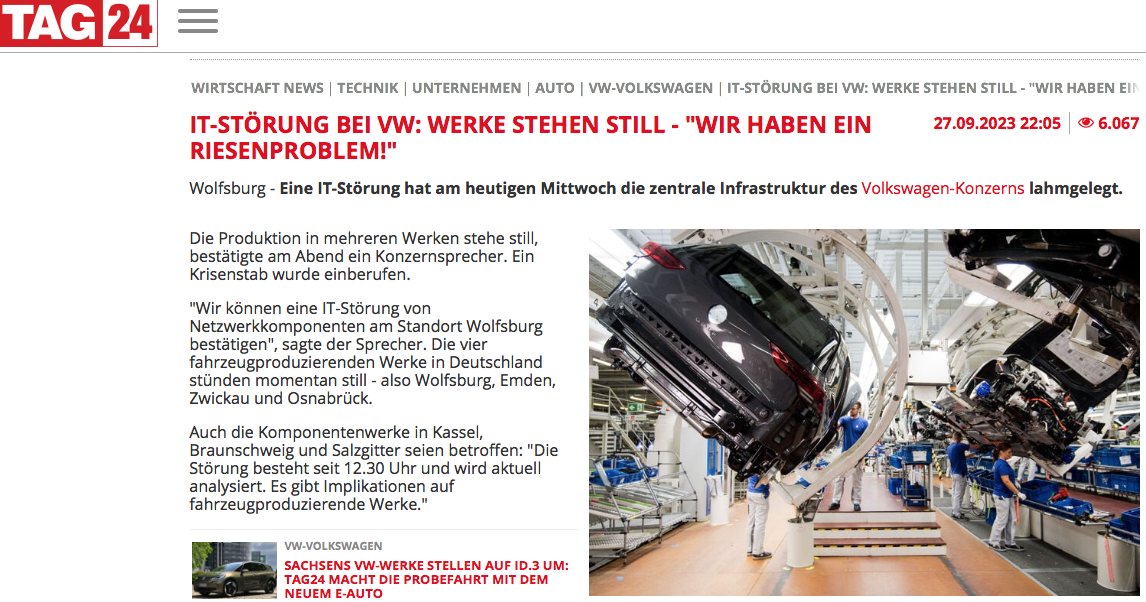In addition to Weibo, there is also WeChat
Please pay attention

WeChat public account
AutoBeta


2024-10-24 Update From: AutoBeta NAV: AutoBeta > News >
Share
AutoBeta(AutoBeta.net)03/13 Report--
Japanese carmakers are under pressure to rebuild their strategy in China as China pushes ahead with its transition to electric cars. According to the latest report from the Nikkei News, Nissan and Honda are planning to cut capacity at their joint venture plants in China, with Nissan planning to cut capacity by 30% and Honda by 20%.

Regardless of whether the news is true or not, the current performance of Japanese car companies in the Chinese market is indeed worrying, especially Nissan and Honda. At present, Nissan has an annual production capacity of about 1.6 million vehicles in China, cutting production capacity by 30 per cent, equivalent to a reduction of about 500000 vehicles a year. As we all know, the joint venture factories between Nissan and Dongfeng Motor are mainly located in Hubei, Henan, Guangdong and other provinces. Nissan sold 793000 vehicles in China in 2023, down 24% from the same period last year. Even if the production capacity is cut by 30%, the annual production of 1 million vehicles is still enough for Nissan. It is worth mentioning that five years ago, in 2018, Nissan ranked first in the Japanese system with sales of 1.56 million vehicles in China, but now sales are only 50 per cent of its peak.

Honda and GAC GROUP set up joint ventures with Guangzhou Automobile Honda and Dongfeng Automobile Group in China to establish Dongfeng Honda. The joint venture plants are mainly located in Hubei and Guangdong, with a total annual production capacity of about 1.5 million vehicles. If Honda plans to cut production by 20% in China, this is equivalent to reducing annual production to 1.2 million vehicles. In 2023, Honda's annual terminal sales in China were 1.234 million, down 10 per cent from a year earlier, with Guangzhou Auto Honda down 13.9 per cent to 621000 and Dongfeng Honda down 4.9 per cent to 614000.
At present, Toyota, one of the big three Japanese car companies, is the only brand that has not announced plans to cut production. Toyota established a joint venture with GAC GROUP in the Chinese market to form a joint venture with Guangzhou Auto Toyota and FAW Group to form FAW Toyota. Toyota's sales in China in 2023 were 1.908 million vehicles, down 1.7% from the same period last year. This is Toyota's second year-on-year decline in China, and the decline is wider than in 2022.
The rapid updating iteration of new energy vehicles has put pressure on Japanese manufacturers who "lie flat", and Japanese cars driven by fuel vehicles are gradually abandoned by consumers. The biggest news among Japanese automakers in 2023 is that GAC-Mitsubishi will stop making China. On October 24th, Japan's Mitsubishi Motors announced that the local production of Mitsubishi-branded cars in China will be terminated, and GAC-Mitsubishi Automobile Co., Ltd. established with GAC GROUP will become a wholly owned subsidiary of GAC GROUP. GAC Ean will use the GAC-Mitsubishi plant to increase production and capacity, and plans to achieve mass production in June 2024. It is revealed that as of March 31, 2023, GAC-Mitsubishi has total assets of 4.198 billion yuan, total liabilities of 5.613 billion yuan and net assets of-1.414 billion yuan.
Since 2024, the increasing price war of new energy vehicles by Chinese car companies has also brought a chill to the two car companies, especially BYD directly hit the slogan "electricity is lower than oil". Qin PLUS DM-i, which started from 79800 yuan, poked directly into Xuanyi's "flesh and blood".
2024 is the key year for new energy automobile enterprises to gain a firm foothold, and the competition is destined to be very fierce. With the rapid improvement of the penetration of new energy vehicles, the scale of the traditional fuel vehicle market is gradually shrinking, and the contradiction between the huge traditional production capacity and the shrinking fuel vehicle market brings a more fierce price war. The scale determines the cost and the survival state of the enterprise, and most manufacturers give priority to the share, which is bound to further aggravate the price competition.
Nissan and Honda's strategy adjustment in the Chinese market will be a long-term process. With the continuous progress of electric vehicle technology and the change of consumer demand, the two companies should not only maintain competitiveness, but also constantly explore and adapt to new market trends. Whether by adjusting production capacity or strengthening the layout of electric vehicles, Nissan and Honda are facing challenges and opportunities for transformation.
Welcome to subscribe to the WeChat public account "Automotive Industry Focus" to get the first-hand insider information on the automotive industry and talk about things in the automotive circle. Welcome to break the news! WeChat ID autoWechat
Views: 0
*The comments in the above article only represent the author's personal views and do not represent the views and positions of this website. If you have more insights, please feel free to contribute and share.











© 2024 AutoBeta.Net Tiger Media Company. All rights reserved.